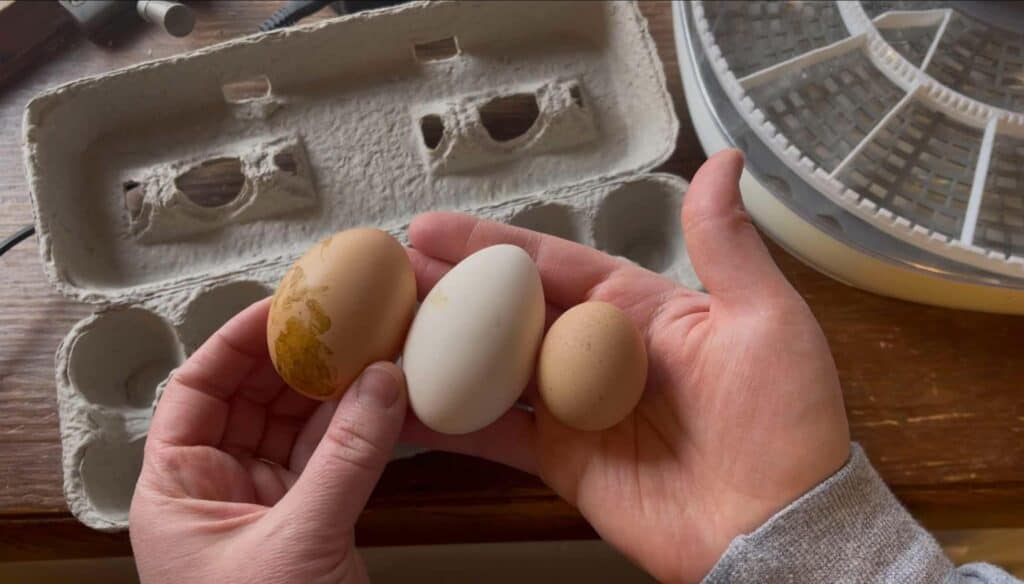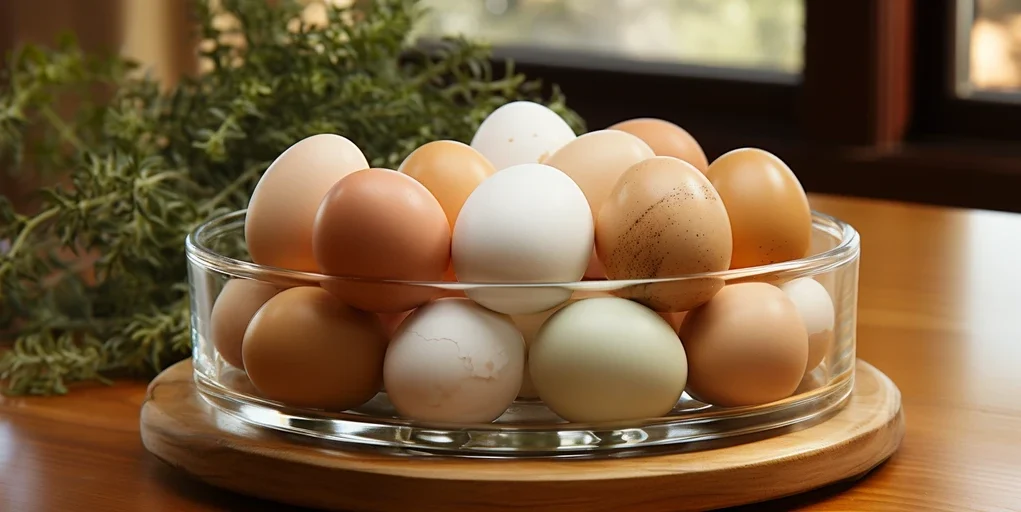When it comes to raising chickens, understanding the difference between fertile vs infertile chicken eggs is crucial. This knowledge not only influences the process of hatching chicks but also impacts how you handle and store the eggs. In this article, we will explore the fundamental differences between these two types of eggs, how to identify them, and their specific uses.

What Are Fertile Chicken Eggs?
Fertile chicken eggs are those that have the potential to develop into a chick. For an egg to be fertile, a rooster must mate with a hen before the egg is laid. This process results in an egg that contains both the genetic material from the rooster and the hen, which is necessary for the development of an embryo.
Identifying Fertile Eggs
One way to identify fertile eggs is through a process known as candling. By shining a light through the egg, you can often see veins and other signs of embryo development, which are indicators of fertility. For more details on how to perform this process, check out this candling guide.
What Are Infertile Chicken Eggs?
Infertile chicken eggs are those that will never develop into a chick. These eggs are laid by hens that have not been fertilized by a rooster. Infertile eggs are safe to eat and are what you typically find in grocery stores.
Why Infertility Matters
Knowing whether an egg is infertile is important for those interested in incubating eggs. It saves time and resources by ensuring only fertile eggs are incubated. Learn more about storing eggs properly before incubation at this storage guide.
The Role of Incubation
Whether eggs are fertile or infertile, the incubation process plays a crucial role in hatching chicks. Fertile eggs need precise conditions to develop properly. You can learn how to maintain these conditions by visiting this humidity guide. For a detailed overview of using an incubator, this external resource is also helpful.
Incubation Tips
Ensuring the right temperature and humidity is crucial for incubation. Fertile eggs should be incubated at a temperature of around 99.5F with a humidity level of 50-55% for the first 18 days. More tips on egg incubation can be found in our beginner’s guide.
Uses of Infertile Eggs
Infertile eggs are predominantly used for consumption. They are a staple in many diets and can be cooked in various ways. They are nutritious, containing protein, vitamins, and minerals.
Storing Infertile Eggs
For the best quality, infertile eggs should be stored in a cool and dry place. They can last several weeks if refrigerated properly.
Fertility and Egg Production
The presence of a rooster is essential for producing fertile eggs. However, the absence of a rooster doesn’t affect the hen’s ability to lay eggs; it only affects the fertility of those eggs.
Chicken Care for Egg Production
Providing a healthy diet and proper living conditions is essential for optimal egg production. For insights on chick care post-hatching, refer to this chick care guide.
Common Misconceptions
One common misconception is that all eggs laid by hens are fertile. This is not true unless there is a rooster present. Another myth is that you can determine fertility just by looking at the egg, which often requires candling or incubation.
Debunking Myths
Education is key to dispelling myths about chicken egg fertility. Understanding the biology of chickens helps in making informed decisions about egg handling and incubation.
Conclusion
Understanding the difference between fertile vs infertile chicken eggs is essential for anyone involved in raising chickens. Whether your goal is to hatch chicks or simply enjoy fresh eggs, knowing these differences will help you make the most of your poultry experience.

FAQ Section
1. How can you tell if a chicken egg is fertile?
Fertile eggs can be identified through candling, where light is used to check for signs of embryo development.
2. Do you need a rooster for hens to lay eggs?
No, hens do not need a rooster to lay eggs. Roosters are only necessary for fertilizing the eggs.
3. How long can you store fertile eggs before incubating?
Fertile eggs can be stored for up to 7 days before incubation, but they should be kept in a cool, stable environment.
This article contains affiliate links. We may earn a commission at no extra cost to you.










